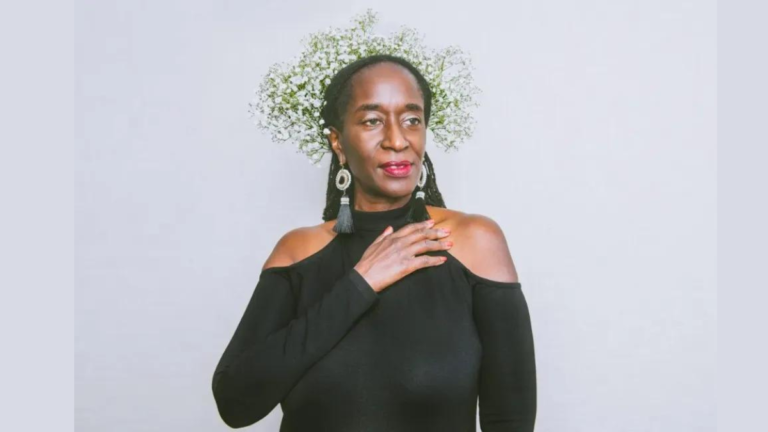
By Nadira Jamerson,
Word in Black
The air is toxic. Water that is filthy. Every day, it appears that another Black neighbourhood is being harmed by environmental contamination. The Department of Justice recently submitted a lawsuit against the city of Jackson, Miss., which has been without clean water since August, for claimed violations of the Safe Drinking Water Act. And now Houston has had to issue a “boil water” warning to caution millions of people not to drink contaminated water.
Furthermore, Black people are more likely to reside in areas affected by climate change, and they are more likely to suffer negative health consequences as a result. People of colour are 61% more likely than white people to reside in a county with a passing rating for at least one pollutant, and 13.4% of Black children have asthma — a condition worsened by polluted air — compared to 7.3 percent of White children.
However, all hope is not gone. Dr. Jackie “Bouvier” Copeland, a Bay Area, California-based activist, believes there is more we can all do to fight climate change and injustice. She founded the Women Invested to Save the Earth (WISE) Fund, which she describes as “a solution that addresses the multiple challenges of racism, sexism, climate change, and equity funding that exist not just in the United States, but all over the world.”
Copeland previously served as the Anita B.Org Institute for Women in Technology’s chief executive officer, the world’s biggest impact-focused women’s technology company. Her 40-year career, however, was catapulted to new heights in 2020.
That same year, COVID-Protests for racial inequity erupted, and out-of-control wildfires devastated California, burning an area approximately the size of Connecticut and Rhode Island combined and murdering 33 people. “For seven months in 2020, California burned almost every single day,” she said. “Fires could be seen from my living room window.”
As a result, Copeland was compelled to move with her elderly mother because the smoke from the continuing fires was causing them both respiratory problems. With smoke physically filling her living room, Copeland felt challenged by the state of the world and wondered what she could do to make a difference.
“For someone like me who has always tried to walk the talk of impact, all of the issues are in my and others’ living rooms,” Copeland explained. “I asked myself, as many others did, are you doing everything you can to be the change?”
Copeland generates funds through the WISE Fund to support cheap and creative technological developments by Black women and people of colour who are developing climate justice technology that can also serve as economic engines in communities hardest affected by climate change. Copeland observed in her previous post that Black women and women of colour were frequently overqualified, yet they were given fewer chances to fund their ideas. With women accounting for more than half of the worldwide population, Copeland believes a lack of investment in this group is harming the globe as a whole.
“They can have all the Ivy League degrees in the world and be fine, often overqualified technologists,” she says, “but we only get 2 to 3 percent of the funding.” “The decision is frequently based on the package we bring in, rather than the qualifications, benefit of the doubt, and potential we possess.”
“Based on our capacity and potential, we are not receiving our fair share of innovation capital.” We make up more than half of the planet; how can our nation and the world handle all of these problems if more than half of the innovators are unable to obtain financing to contribute to the solution?” So far, the WISE Fund has raised more than $1 million to fund climate justice projects and activists in Africa, Australia, Brazil, India, the United States, and the Caribbean.
WISE contributed to the funding of We Solar, the first Black woman-owned solar farm in the United States, which offers more cheap and cleaner electricity to citizens of Washington, D.C. WISE collaborated with Majik Water in Nairobi, a business that uses an atmospheric water system to collect water from the air to fight drought in Kenya.
WISE is also the parent organisation for Black Philanthropy Month, a yearly and year-round festival in August organised by Copeland to raise consciousness of Black giving and support financing, equality, philanthropy, and business investment. Since its inception 20 years ago, Black Philanthropy Month has helped 18 million people in 60 nations, according to Copeland.
“We believe that funding home-grown grassroots technological innovations in the communities most underfunded and impacted by these climate and social issues — in a way that builds economy — is a key to positive accelerated change to match the rapid destruction of our communities,” Copeland said.
Black women and other diverse groups interested in receiving money for accessible and cheap climate-justice-focused tools should visit Get WISE Support and complete their pre-qualification link. WISE continues to collect in order to work with more forward-thinking initiatives, so assistance is given on a continuous basis. WISE is presently raising $50 million in funding to continue investing in climate justice activities around the globe.
“Because climate change is a global issue, it’s probably easier to have an impact on all communities if we get it right in the hardest hit areas.” Racism and misogyny are worldwide phenomena. “We can’t just work in our own backyards and think we’ve solved the problem,” Copeland said. “These issues are at once local, regional, national, and global.” We are one species, sharing one earth.”